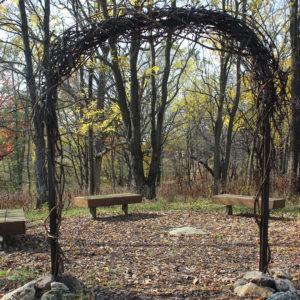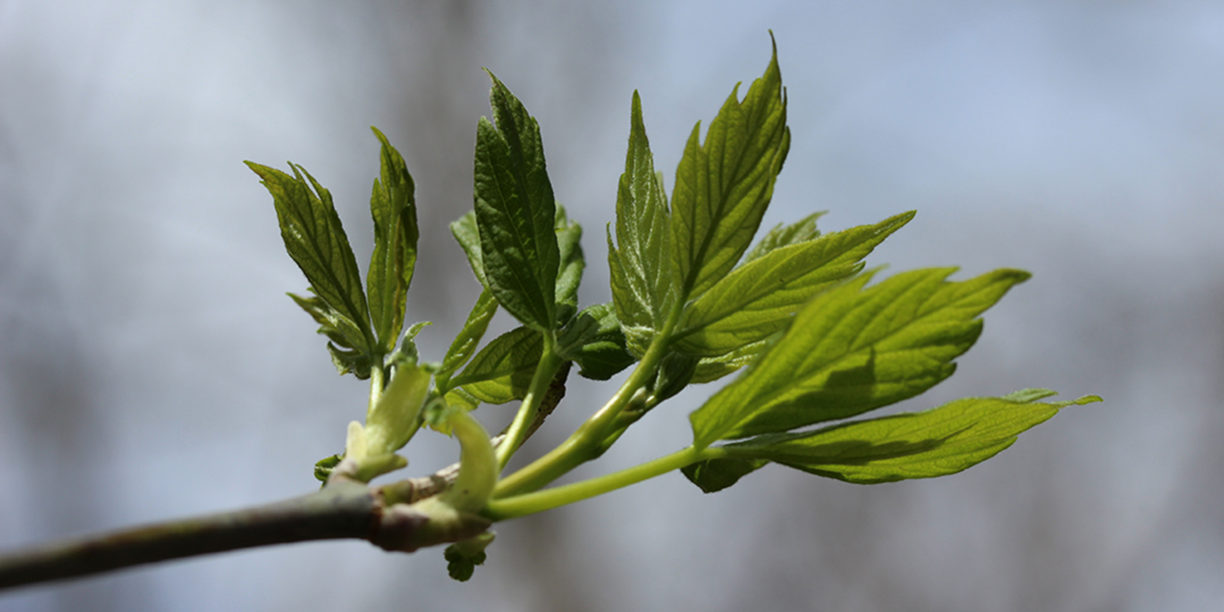“Conversation is perhaps our greatest hope not only for healing the rifts in human understanding but also for restoring and reinspiring our relationship with the natural world, which is our first and most profound home. Care of the world is always essential, and care arises from conversation.”
—Thomas Dean, Introduction, Tallgrass Conversations: In Search of the Prairie Spirit, by Cindy Crosby and Thomas Dean (Ice Cube Press, 2019)
The essence of conversation is attention. In my previous “Nature Conversations” posts for the #PanDeepening blog, I talked about how we can achieve that attention through the senses. But I’d like to take a step (or a few steps) back and consider some broader ideas about what it means to be attentive to the world. Poet and author David Whyte provides a profound understanding through his concept of “the conversational nature of reality.”
 In an interview with Krista Tippett on public radio’s On Being (April 7, 2016), Whyte, trained as a marine zoologist, describes how scientific language grew inadequate to describe his experiences in the Galapagos Islands, where he worked early on as a naturalist guide. Whyte says, “In Galapagos, I began to realize that because I was in deeply attentive states, hour after hour, watching animals and birds and landscapes—and that’s all I did for almost two years—I began to realize that my identity … actually depended on how much attention I was paying to things that were other than myself—and that as you deepen this intentionality and this attention, you [start] to broaden and deepen your own sense of presence.”
In an interview with Krista Tippett on public radio’s On Being (April 7, 2016), Whyte, trained as a marine zoologist, describes how scientific language grew inadequate to describe his experiences in the Galapagos Islands, where he worked early on as a naturalist guide. Whyte says, “In Galapagos, I began to realize that because I was in deeply attentive states, hour after hour, watching animals and birds and landscapes—and that’s all I did for almost two years—I began to realize that my identity … actually depended on how much attention I was paying to things that were other than myself—and that as you deepen this intentionality and this attention, you [start] to broaden and deepen your own sense of presence.”
In finding this meeting point between self and other, Whyte realized that in fact reality lies “at this frontier between what you think is you and what you think is not you.” It is incumbent upon people, then, to stop “abstracting themselves out of their bodies, out of their direct experience” and “hold the conversation at that frontier level.” We must enter into what Whyte ultimately calls “the conversational nature of reality.”
The anthem of Whyte’s conversational nature of reality is his poem “Everything Is Waiting for You.” (See the full text of the poem below.) In these inspiring verses, Whyte encourages us to “[feel] the grand array;/the swelling presence, and the chorus, crowding/out your solo voice.” Whyte’s urgent invitation is especially important in these times of our more restricted human movement. He insists that the frontier of this profound reality of the world can be and is found in “the intimacy of your surroundings,” in “the way the soap dish enables you,/or the window latch grants you freedom.” For me, the most important, most succinct statement of Whyte’s poem—and his idea—is that “Alertness is the hidden discipline of familiarity.”
 Harking back to the origins of Whyte’s idea in his transformative experience in the Galapagos, the frontier of reality where we must enter into conversation with the world is also, if not most importantly, in nature. Nature conversations, then, are among our most important existential activities! Whyte continues his poem by invoking the everyday familiarity of stairs, doors, phones, kettles, and cooking pots, but he ends with these amazing words: “All the birds/and creatures of the world are unutterably/themselves. Everything is waiting for you.”
Harking back to the origins of Whyte’s idea in his transformative experience in the Galapagos, the frontier of reality where we must enter into conversation with the world is also, if not most importantly, in nature. Nature conversations, then, are among our most important existential activities! Whyte continues his poem by invoking the everyday familiarity of stairs, doors, phones, kettles, and cooking pots, but he ends with these amazing words: “All the birds/and creatures of the world are unutterably/themselves. Everything is waiting for you.”
Everything is waiting for you. The conversation is reality. Even amidst the pandemic’s quarantine, self-isolation, social distancing, and stay-at-home orders, the beauty and profundity of reality remains everywhere—that is, wherever we bring our attentiveness to the frontier between self and the rest of creation, and then enter into conversation with it. We must “come out of abstraction and back into the world again,” as Whyte says in his conversation with Tippett.
For our nature conversations, that means listening, touching, and doing everything else that heightens our attention on the life of the world. Doing so brings us into conversation, which manifests as imagination, reverie, and change of consciousness, as we discussed in my last blog entry. No pandemic can stop our “hidden discipline of familiarity” in “alertness,” as long as we ease into the conversation with the “grand array” and the “swelling presence” of everything.
—Thomas Dean, Prairiewoods programming facilitator and co-author (with Cindy Crosby) of Tallgrass Conversations: In Search of the Prairie Spirit (Ice Cube Press, 2019)
Everything Is Waiting for You
After Derek MahonYour great mistake is to act the drama
as if you were alone. As if life
were a progressive and cunning crime
with no witness to the tiny hidden
transgressions. To feel abandoned is to deny
the intimacy of your surroundings. Surely,
even you, at times, have felt the grand array;
the swelling presence, and the chorus, crowding
out your solo voice. You must note
the way the soap dish enables you,
or the window latch grants you freedom.
The stairs are your mentor of things
to come, the doors have always been there
to frighten you and invite you,
and the tiny speaker in the phone
is your dream-ladder to divinity.Put down the weight of your aloneness and ease into the
conversation. The kettle is singing
even as it pours you a drink, the cooking pots
have left their arrogant aloofness and
seen the good in you at last. All the birds
and creatures of the world are unutterably
themselves. Everything is waiting for you.—David Whyte, from Everything Is Waiting for You (Many Rivers Press, 2003)


